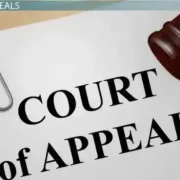CCT Suspends Kano Anti-corruption Chairman

Lawyard is a legal media and services platform that provides…
The Code of Conduct Tribunal has suspended the Chairman of the Kano State Public Complaint and Anti-corruption Commission, Muhyi Magaji, following allegations of misconduct and breaches of public officer’s conduct.
Magaji, who is facing charges ranging from alleged conflict of interest to false asset declaration and accepting bribes, was arraigned in Abuja on Thursday.
The CCT granted a motion for his suspension, directing him to step aside from his position pending the resolution of the case.
The Kano State Government had earlier dragged the Federal Government before the state High Court over what it described as harassment and intimidation of the PCACC chairman by three federal agencies.
This was a sequel to an invitation sent to the PCACC and its officials by the Economic and Financial Crimes Commission, the Independent Corrupt Practices Commission, and the Code of Conduct Bureau, respectively, to answer questions over the state commission’s administration from 2011 to date.
However, in a statement on Thursday, the spokesperson for the CCB, Veronica Kato, confirmed Magaji’s suspension by the CCT.
The statement read, “The Code of Conduct Tribunal has suspended the Chairman, Kano State Anti-corruption and Public Complaints Commission, Muhuyi Magaji, today in Abuja on a 10-count charge of corruption filed against him by the Code of Conduct Bureau on November 16, 2023.
“Delivering the ruling, the Chairman, Code of Conduct Tribunal, Justice Danladi Umar, established that the tribunal has the competence and jurisdiction to hear the case.
“He explained that Muhuyi Magaji cannot continue to discharge the duties and responsibilities of his office while facing trial to avoid any interference with the case. Hence, the suspension
“This is pending the conclusion of the trial. The case has been adjourned till May 7 and 8, 2024, for hearing.”
Lawyard is a legal media and services platform that provides enlightenment and access to legal services to members of the public (individuals and businesses) while also availing lawyers of needed information on new trends and resources in various areas of practice.













